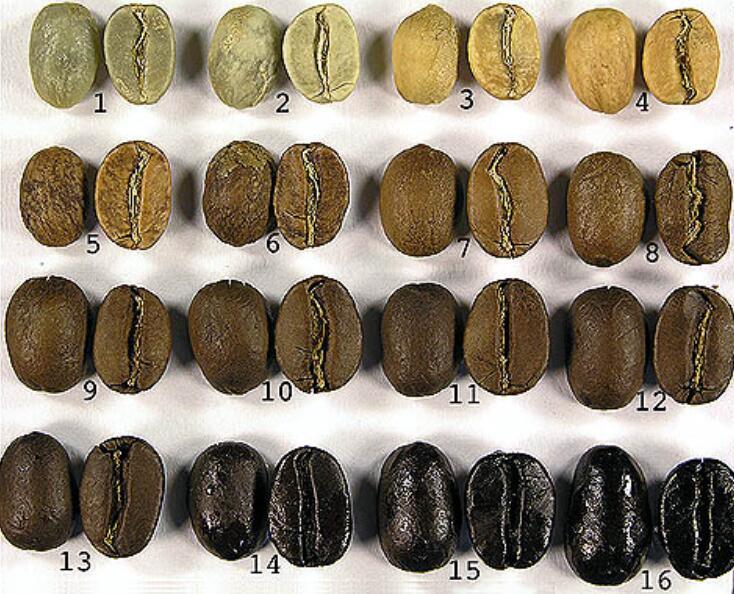Coffee Beans - Four Famous Beans
2025-06-04

Speaking of coffee, the origin of this plant can be traced back to millions of years ago. In fact, the true age of its discovery is unknown, and it is only said that coffee is from Ethiopia
A shepherd named Kaldi from Yagao discovered coffee when he noticed that his sheep had accidentally eaten the fruit of a plant and became very lively and energetic. All historians seem to agree that coffee originated in the Kaffa region of Ethiopia. But the earliest ethnic group to plan the cultivation and consumption of coffee was the Arabs, and the name coffee is believed to originate from the Arabic word "Qahwah" - meaning plant-based beverage.
Coffee is said to have been used for drinking since the early 11th century, as recorded in ancient Arabic literature. Before that, in the Arab region, coffee beans were dried and boiled before being consumed as stomach medicine. However, it was later discovered that coffee also had a refreshing effect, and with the strict Islamic law prohibiting believers from drinking alcohol, they used roasted coffee juice as an excitatory beverage to replace alcohol. It is said that the locals learned how to use roasted beans after the 13th century.
In the 16th century, coffee was gradually introduced to Europe under the name of "Arabic wine" through Venice and the port of Marseille. The trend of Europeans drinking coffee was gradually spread by Venetian merchants in Italy in the 17th century, and the first coffee shop in Europe, Bottegadel Caffe, appeared in Venice. For four hundred years, the drinking habit of coffee has not only spread from the West to the East, but has even become an unstoppable trend.
Coffee was extensively and systematically cultivated by Arabs in the 12th and 3rd centuries, and in the 16th century, the world's first coffee shop was born in Damascus, Middle East (1530). In just a few years, over 200 cities throughout the empire, from ancient Constantinople to the Caucasus, from the Persian Gulf to Budapest, had varying numbers of coffee shops. The roads connecting these cities through the desert wilderness were also filled with movable coffee tents, serving the endless stream of merchants and military personnel. In the same century, coffee also spread to Europe. At that time, coffee was taken to western countries with the Turks' westward expedition to Austria. Unexpectedly, it soon captured the hearts of Europeans. According to records, a package of samples sent from Venice to the Netherlands in 1596 was the earliest coffee beans seen by Europeans north of the Alps. There is a legend that because coffee was very rare in Western Europe at that time, there were even jokes about German housewives using chicken soup to make coffee. According to scholars' speculation, in the prosperous import and export trade of seasoning ingredients at the end of the 16th century, many coffee beans from the East began to continuously enter Europe through the economically developed Venice.
However, the first coffee shop in Europe was not opened in Vienna, Austria until 1683 by a Polish man. Businessmen who knew the languages of Eastern Europe and Türkiye, led by the shrewd and outstanding Armenian businessman Johannes Diodato, not only served as interpreters and guides for Austria during the war, but also engaged in the coffee trade with amazing profits on both sides of the line of fire. While meeting the needs of their own cafes, they also solved the urgent problem of shortage of raw materials for the coffee parties of many aristocrats and wealthy citizens' families, which was well received by the upper class. A few years later, the coffee industry, which can be seen everywhere on the streets, developed rapidly. Most of these cafes were opened by his fellow countrymen or Turks from other parts of the Ottoman Türkiye Empire. Naturally, they had a strong Middle Eastern flavor. Many corners of the street were filled with narrow shops with hot coffee. You can also see the unique benches against the wall and open wood burning coffee ovens in Istanbul coffee shops. Most of the guests in these cafes came from vendors, craftsmen and craftsmen who made a living in foreign countries near the market.
The pure European style coffee shops that people are familiar with or imagine as elegant, comfortable, and have an open social salon atmosphere will have to wait for about fifty years until the Enlightenment era, when civic consciousness is generally awakened, truly begins to take center stage in Vienna and other Western cities.
Previous Page:
Next Page:







